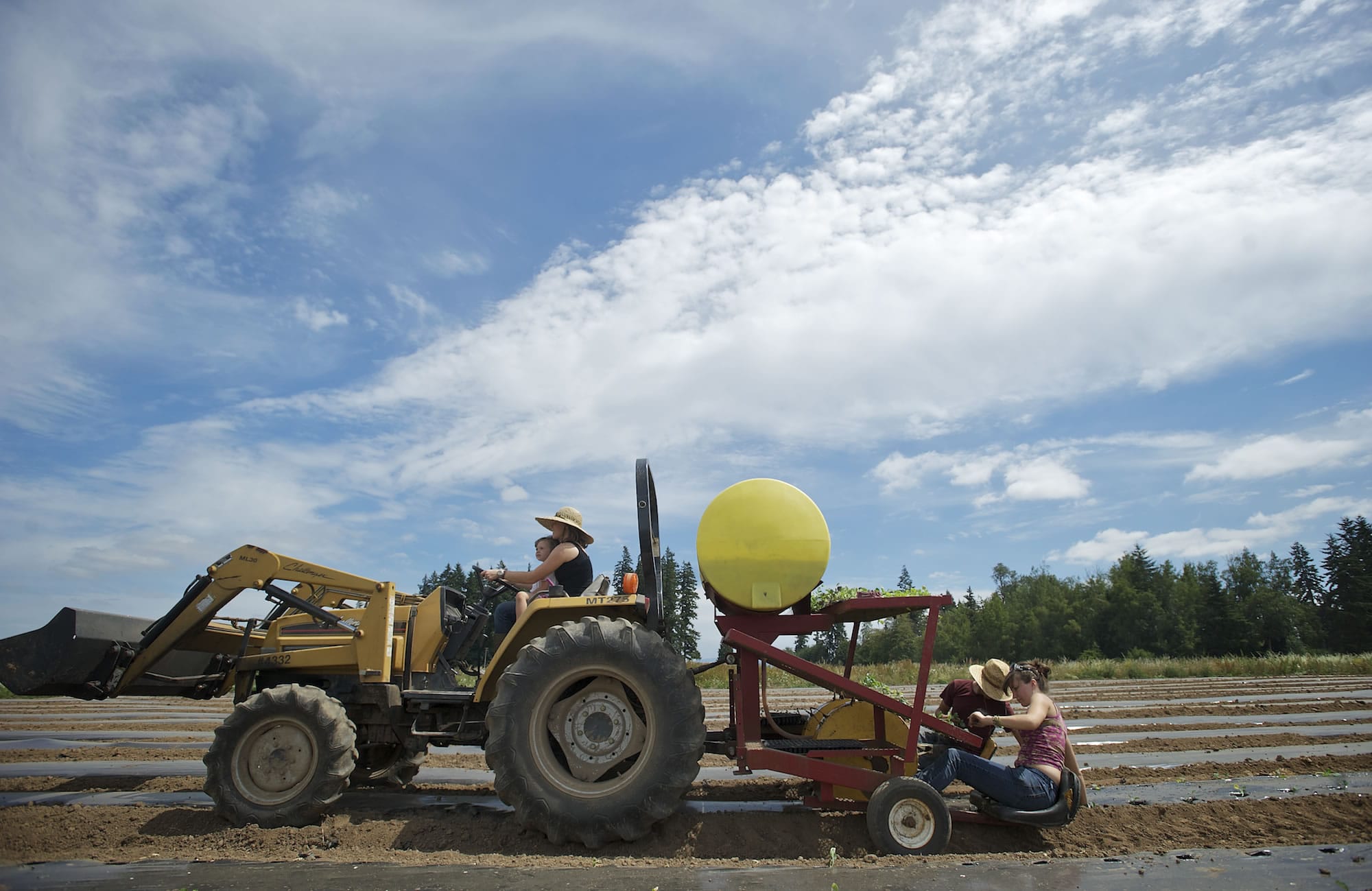Local farms have long hosted events to bring people directly to their grounds. They might boost bottom lines in an industry that’s inherently volatile and uncertain. But for Stanley and others, the motivation to bring people to the fields is more than that — they see themselves as educators, filling in a serious knowledge gap when it comes to agriculture. It’s a reality that persists even as many people have become more health- and food-conscious and organic food gains favor.
That’s part of what motivated nearby Northwest Organic Farms to start its annual Garlic Festival eight years ago, said Joyce Haines, whose family runs the farm.
“A lot of people, especially younger people, have never been to a farm,” Haines said. “They don’t know that apples grow on trees. I’m not just saying that; I truly mean it.”
When farms reach out to their communities through events or markets, it creates a two-way benefit, said Doug Stienbarger,
county director of Washington State University’s Clark County Extension. Visitors get the farm experience. Farms get a few extra dollars, and extra exposure. That’s particularly important for newer farmers, Stienbarger said, especially in a region without many large-scale operations.
“The hardest thing for people too often is the marketing, but it’s also the most important,” he said.
Stanley has multiple ideas for Gee Creek Farm, among them a possible concert this fall, dinners, farm camp, or a social gathering known as “weed dating.”
Stanley makes it clear he’s not motivated by financial gain from those or any other activities. His vision is broader. He wants people to come together in a positive environment that empowers them, teaches about the world around them, and encourages them to live healthier, more independent lives, he said. Stanley doesn’t hide his growing practices from visitors. He wants people to see them and use them.
“Really, once people start eating better, their mind clears and they start feeling better,” Stanley said. Heart disease and other leading causes of death in America, he said, are no coincidence.
“Most people die by suicide by food poisoning,” Stanley said.
At Northwest Organic Farms, owners want visitors to know what organic food actually is, Haines said. Plenty of food producers claim organic practices or “green” products, but unless it’s certified, those labels mean little, she said. In general, produce must be grown by approved methods — without synthetic fertilizers or other additives — to be certified organic by the U.S. Department of Agriculture.
Like Stanley, Haines said her farm aims to expose people to new food in a family-friendly environment. Not everyone comes around right away. Haines said she’s seen the occasional person eyeing an heirloom tomato, for example, not quite sure about it.
“It didn’t look like it came from Safeway,” she said, “it was just kind of different.”
Farms have made gains recently in reaching consumers directly, according to Stienbarger. Only a handful of community-supported agriculture programs, or CSAs, existed in Clark County a decade ago, he said. Now, some two dozen allow people to buy food shares straight from local farms. Both Gee Creek Farm and Northwest Organic Farms offer their own programs. Both also sell indirectly through local grocers and markets.
Plenty of people balk at the higher price of organic produce. In many cases, that’s true, at least upfront. But most don’t consider the health-related costs that may follow years of not eating well, Stanley said.
“Sometimes,” Stanley said, “buying the cheap thing is not the good value.”
Eric Florip: 360-735-4541; http://twitter.com/col_enviro; eric.florip@columbian.com.




